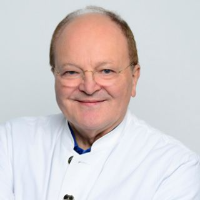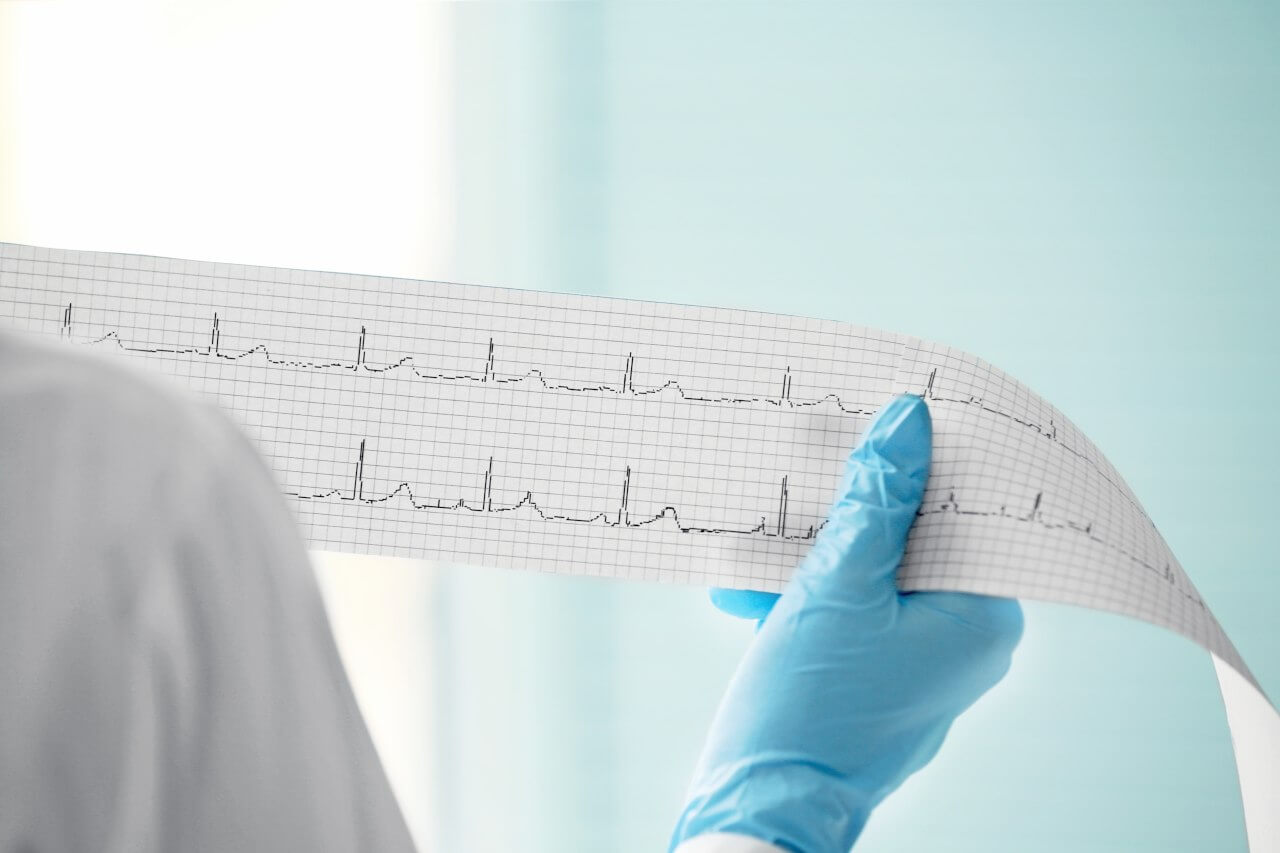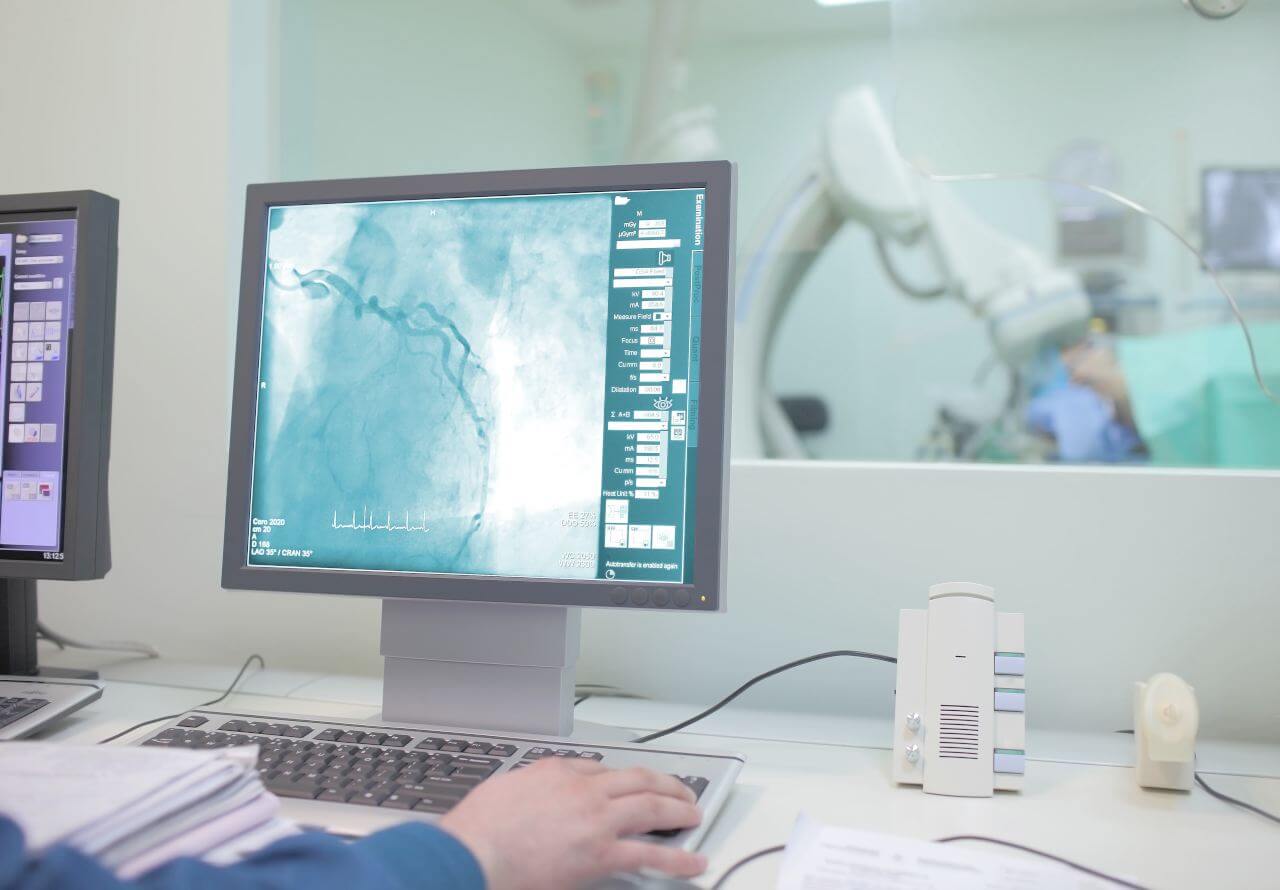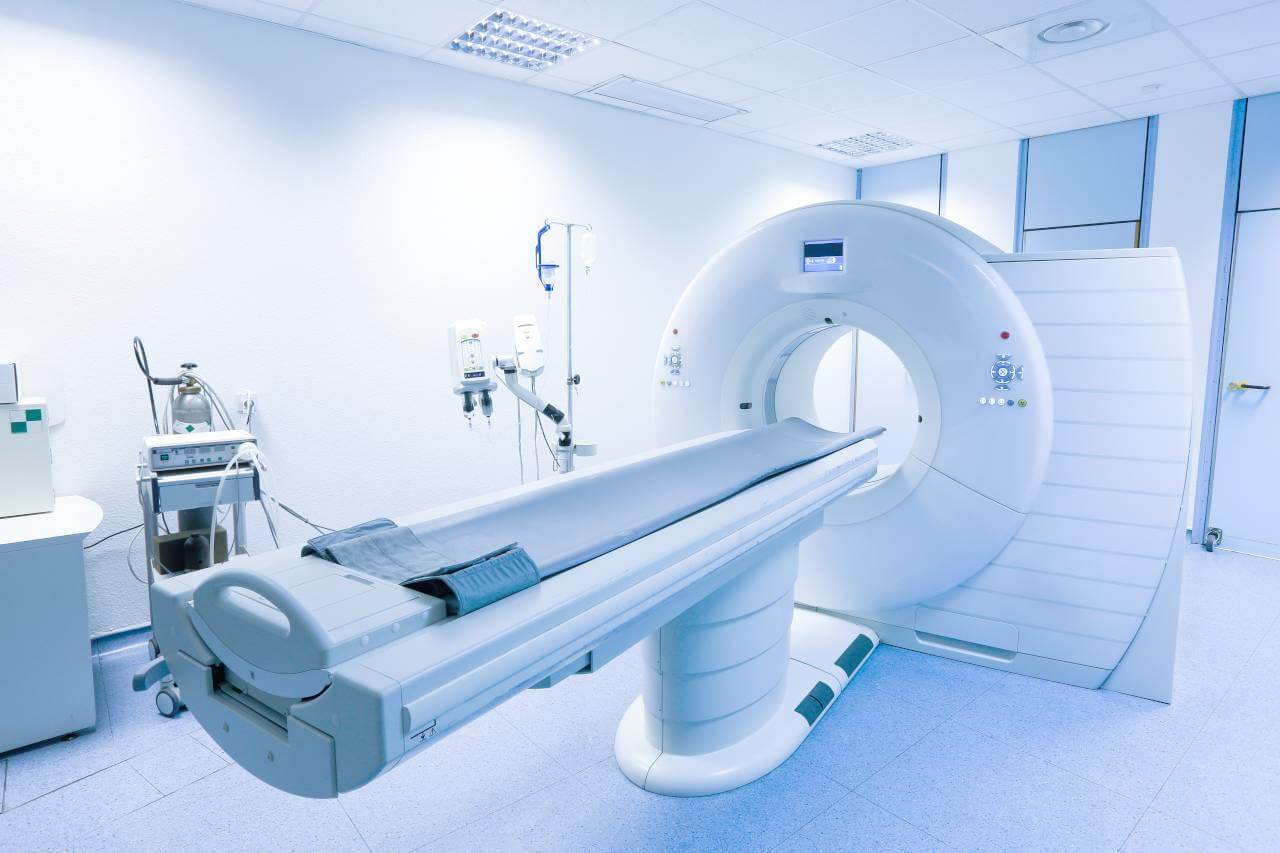
The program includes:
- Initial presentation in the clinic
- clinical history taking
- review of medical records
- physical examination
- laboratory tests:
- complete blood count
- biochemical analysis of blood
- inflammation indicators (CRP, ESR)
- indicators blood coagulation
- TSH-basal
- blood gas analysis
- chest x-ray examination
- holter monitoring (24h)
- measurement of arterial blood pressure
- electrocardiogram (ECG)
- high-resolution computed tomography (HR-CT)
- pulmonary function test
- nursing services
- consultation of related specialists
- treatment by chief physician and all leading experts
- explanation of individual treatment plan
(the cost of medicines is not included)
Required documents
- Medical records
- Spirometry (if available)
- Chest X-ray (if available)
- ECG, EchoCG (if available)
Service
You may also book:
 BookingHealth Price from:
BookingHealth Price from:
About the department
The Department of Cardiology at the Medical Care Center Prof. Mathey and Prof. Schofer Hamburg provides the full range of diagnostic and therapeutic services in its area of competence. The department's team of doctors specializes in the conservative and catheter-based treatment of cardiovascular diseases. The department operates three high-tech Cardiac Catheterization Laboratories, where physicians perform diagnostic and therapeutic procedures for coronary heart disease. The medical facility also has extensive experience in the treatment of heart valve pathologies. The department’s cardiologists are convinced that the key to effective treatment is accurate diagnosis, so it is equipped with modern diagnostic rooms for resting and stress electrocardiography (ECG), 24- and 48-hour Holter monitoring, echocardiography, long-term blood pressure measurements, and other examinations. Another structural unit of the department is an outpatient clinic that specializes in monitoring the operation of pacemakers, implantable cardioverter-defibrillators, and cardiac resynchronization therapy devices. The department's cardiologists are also competent in the implantation of pacemakers and event recorders. Catheter-based interventions on the heart are performed on an outpatient basis under local anesthesia. The department's doctors follow the current clinical protocols and recommendations of the German Society of Cardiology (DGK) in their daily clinical practice, which facilitates high treatment success rates. The Head Physician of the department is Prof. Dr. med. Detlef Mathey.
Of particular interest to the department's cardiologists is the diagnosis and treatment of coronary heart disease. At the diagnostic stage, clinicians perform resting and stress electrocardiography, echocardiography, coronary angiography, fractional flow reserve assessment, and intravascular ultrasound. If clinically indicated, CT and/or MRI scans of the heart may also be performed. The optimal set of diagnostic procedures is prescribed after an individual consultation with the patient and studying their medical history.
The first-line treatment for coronary heart disease is drug therapy. If it is unsuccessful, the department’s specialists resort to catheter-based treatment. One of the most effective catheter-based techniques for treating coronary artery stenosis and occlusion is percutaneous transluminal coronary angioplasty (PTCA) with stenting. The department's cardiologists implant modern drug-eluting stents. During the PTCA procedure, the doctor punctures the femoral or radial artery, after which he delivers a long flexible catheter with a balloon attached to it to the site of narrowing under imaging guidance. After the placement of the balloon, it is inflated, thereby eliminating occlusion of the lumen of the coronary artery. The final stage of the therapeutic manipulation is the implantation of a stent (a frame-shaped structure). This allows for maintaining the blood vessel open and ensures normal blood supply to the myocardium. Percutaneous transluminal coronary angioplasty is performed under local anesthesia on an outpatient basis.
It is worth noting that the department’s cardiologists have repeatedly encountered complex forms of coronary heart disease over the years of their work. Such cases require special care and competence, so a board of specialists thoroughly studies the patient’s clinical data at the diagnostic stage. Doctors need to assess whether coronary angioplasty is the best treatment option or whether coronary artery bypass grafting should be recommended. If the patient is indicated for catheter-based treatment, the PTCA procedure is performed by two experienced cardiologists. This approach allows the department's physicians to guarantee a good result and maximum safety. The department’s doctors successfully use rotablation and the innovative method of intravascular lithotripsy to treat coronary artery calcification.
The department's clinical priorities include catheter-based treatment of heart valve diseases. Catheter-based correction of valvular heart defects is an alternative to open surgery. This treatment option is highly effective and does not require opening the chest (approach is provided through a femoral artery puncture) or the use of a heart-lung machine. Catheter-based interventions are performed in the department under local anesthesia. Catheter-based procedures for the correction of heart valve defects are carried out personally by Prof. Joachim Schofer. The specialist is one of the pioneers in the field of percutaneous treatment of heart valve pathologies in Germany and has more than 15 years of successful clinical experience in this field. During his career, he performed more than 2,000 transcatheter aortic valve implantation (TAVI) procedures and over 800 catheter procedures for mitral and tricuspid valve disease.
The department's range of medical services includes the following:
- Diagnostics
- Resting and stress electrocardiography (ECG)
- 24- and 48-hour Holter monitoring
- Echocardiography (transthoracic and transesophageal)
- 24-hour blood pressure monitoring
- Cardiac computed tomography
- Cardiac magnetic resonance imaging
- Catheter-based diagnostic procedures
- Coronary angiography
- Fractional flow reserve assessment and resting full-cycle ratio assessment
- Right heart catheterization
- Treatment
- Drug therapy
- Catheter-based interventional procedures
- Percutaneous transluminal coronary angioplasty (PTCA)
- Rotablation and intravascular lithotripsy for coronary artery calcification
- Pacemaker and event recorder implantation, including monitoring the operation of pacemakers, implantable cardioverter-defibrillators, and cardiac resynchronization therapy devices
- Transcatheter aortic valve implantation (TAVI)
- MitraClip procedure
- Other medical services
Photo of the doctor: (c) MVZ Prof. Mathey, Prof. Schofer
About hospital
The Medical Care Center Prof. Mathey and Prof. Schofer Hamburg is a highly specialized clinic that has been successfully diagnosing and treating cardiovascular and respiratory diseases for more than 30 years. Structurally, the medical center consists of the following three specialized departments: Department of Cardiology, Department of Angiology, and Department of Pulmonology. Each department is staffed by a highly qualified team of doctors headed by a professor. The specialists have many years of experience, which allows them to successfully deal with clinical cases of varying complexity.
One of the key focuses of the medical center's doctors is the conservative and catheter-based treatment of heart disease. The healthcare facility also offers comprehensive Check-up programs to assess the patient's general health and identify risk factors for heart disease. For the patient's maximum comfort, specialists strive to perform a complete diagnosis in just one day. The medical center has three advanced Cardiac Catheterization Laboratories where cardiologists perform coronary angiography, stent implantation to eliminate coronary artery stenosis and occlusion, pacemaker implantation, and other procedures. The medical facility's specialists keep pace with innovation to provide patients with all currently available diagnostic and therapeutic services.
The Medical Care Center Prof. Mathey and Prof. Schofer Hamburg admits for treatment more than 30,000 patients every year. The clinic is deservedly proud of its outstanding treatment results, thanks to which it has gained an excellent reputation in Germany and abroad.
Photo: (с) depositphotos
Accommodation in hospital
Hotel
You may stay at the hotel of your choice during the outpatient program. Our managers will support you for selecting the best option.





